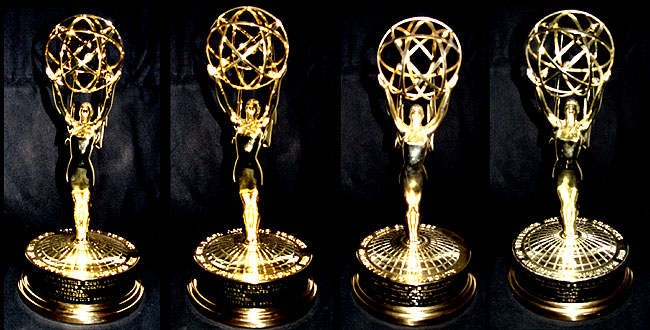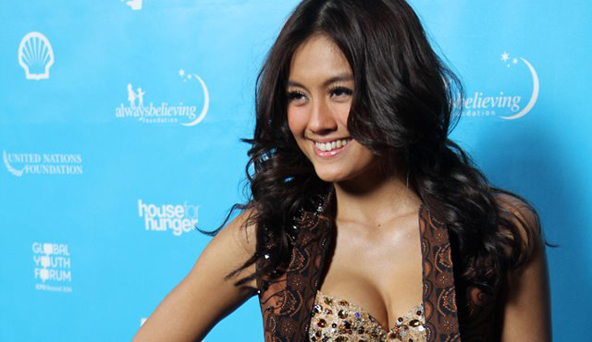The Emmy Awards are quickly approaching and the television industry is buzzing with excitement.
With the big event only a few days away, Lee & Low Books decided to take a deeper look into this very highly anticipated awards ceremony. The award-winning publishing company has made a name for itself by publishing a number of multicultural children’s books. They have made it their mission to spark conversation about race, gender and diversity issues, both in publishing and beyond.
Lee & Low has already done studies on diversity in children’s books and the Tony Awards. Now, they’ve taken on one of the most influential industries in entertainment – television.
Lee & Low analyzed Emmy Award winners from 1992 to present day and made these shocking discoveries:
- No woman of color has ever won an Emmy Award for Best Actress in a Drama Series (Kerry Washington, nominated in 2013, would be a historic first if she wins).
- In the last twenty years, winners in the Best Director of A Comedy Series were 100% white and 95% male.
- An African American woman has not been nominated for Lead Actress in a Comedy Series since The Cosby Show in 1986.
The diversity gap among the winners is quite hard to swallow. It is important to note that there are only two categories here: white and ALL people of color. We don’t even want to think of the poor representation of Asians who take only a small portion of the already small percentage of people of color winners.
To help explain this diversity gap, Lee & Low Books spoke to Kelvin Yu, a Taiwanese American writer currently working on the Fox animated series Bob’s Burgers about the diversity gap on televiion. Yu believes that it’s time for Asian Americans to step up and tell our own stories, and not wait around for others to tell them for us.
I know for a FACT that Asian Americans love to consume media – movies, television, video games, social media, all of it – so their lack of representation over the past several years is probably a combination of factors including cultural emphasis in different fields, a lack of avenues within the industry, and some level of systemic prejudice (particularly in the past).
However, I do think this is about to change big time. I think in the next few years you will see a flood of Asian content creators. Some of that is simply the rapidly closing cultural gap that social media and the internet are facilitating. Young Asian writers and actors and directors are growing up seeing Ang Lee and Justin Lin and Wong Kar Wai and Zhang Yimou win Oscars and BAFTAs. The world, for better or for worse, is remarkably smaller than it was a decade ago and audiences are more open, even hungry, for unique voices. I also think new media renders many of those past obstacles powerless against the thousands of outlets for Asian American creativity. For instance, even if your stern Korean father wants you to become a doctor, he can’t really stop you anymore from making small movies with your iPhone and cutting them with some app. People can write, shoot, edit, and even distribute content from a $300 laptop. How was an Asian American teenager supposed to do that in 1990? Not to make Asian parents seem like the only barrier, and also not to make them seem all like Kim Jong Eun. I just think we’re about to see an influx of new voices and, thus, new stories. Which is very exciting.
We’ve seen that movie goers will champion protagonists in every shape, color, or form (even a talking pig!) if the storytelling is honest and resonant. So in some ways, I just challenge Asian American writers, producers and directors to introduce great stories that feature different types of protagonists. It wouldn’t be fair or realistic to charge other people to tell your stories. People are just “writing what they know,” which can be a virtue while simultaneously a tragedy.
Read the full story here.









